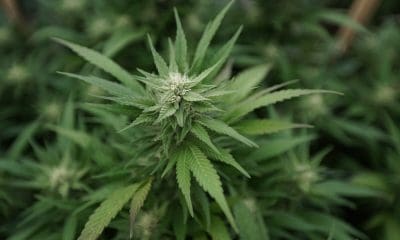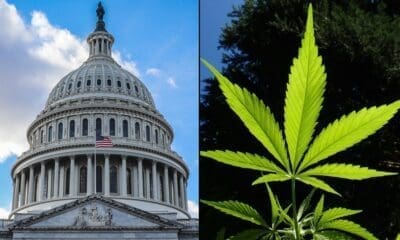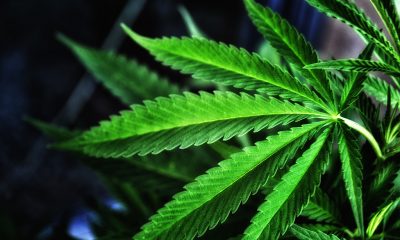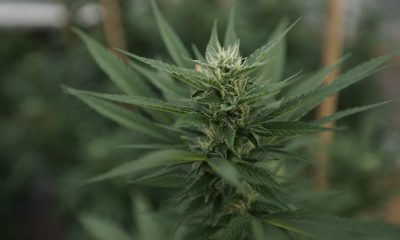Politics
Marijuana Protections For Indian Tribes Included In Key Congressional Spending Bill, With Some Exceptions
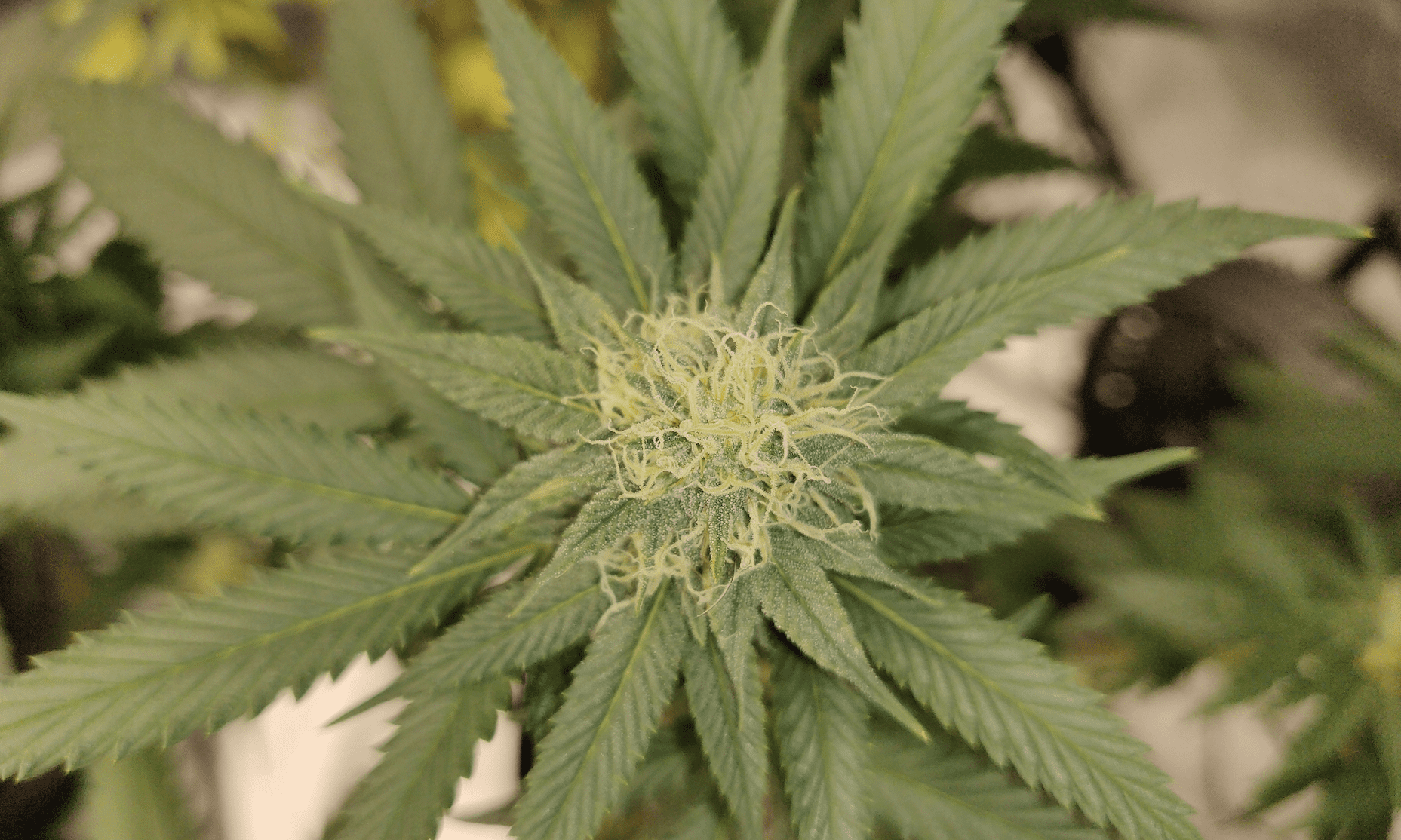
Congressional leaders are seeking protections for Indian tribes against being federally prosecuted simply because they’ve legalized marijuana within their territory. However, there are some nuances to the proposed protections included a spending bill released by a House Appropriations subcommittee on Monday.
The Fiscal Year 2023 appropriations legislation for the Department of the Interior is somewhat similar to previous sections attached to different spending bills as amendments that have pushed to give cannabis safeguards to tribes. However, this new section comes with contingencies not seen before, including a policy stating that tribes in states that haven’t legalized marijuana aren’t covered under the protections.
The tribal marijuana language is one of several cannabis-related proposals that have been filed in spending bills for various agencies over the past week. It also comes on the heels of a Senate committee listening session on Friday that explored cannabis issues for Native Americans, touching on areas such as tribal sovereignty in the marijuana space, agreements with state governments and taxation.
Overall, the new House cannabis provision—which is notably attached to the base bill as introduced by panel leaders, meaning no amendments will be necessary as with past similar measures—says that no federal funds appropriated to agencies within Interior, Justice Department, Bureau of Indian Affairs or Office of Justice Services could be used to “enforce federal laws criminalizing the use, distribution, possession, or cultivation of marijuana against any person engaged in the use, distribution, possession, or cultivation of marijuana in Indian country” where such activity is authorized.
Enforcing Federal #cannabis laws inconsistent with Tribal law is wrong. That's why I worked closely with the Chair to ensure the bill protects the rights of Tribes that have legalized the use, distribution, possession, or cultivation of cannabis ⤵️ https://t.co/gGKP53ErRA
— Dave Joyce (@RepDaveJoyce) June 21, 2022
But it’s not an all-encompassing protection, as the section goes on to say that the policy is “subject” to two exceptions.
First, federal funds could still be used to interfere in tribal cannabis activity if the territory is located within a state that maintains prohibition, for example.
Indian tribes must also take “reasonable measures under tribal marijuana laws to ensure that marijuana is prohibited for minors; marijuana is not diverted to states or tribes where marijuana is prohibited by state or tribal law; marijuana is not used as a means for trafficking other illegal drugs or used to support organized crime activity; and marijuana is not permitted on Federal public lands.”
Previous provisions attached to House-passed appropriations bills covering the Commerce, Justice, Science, and Related Agencies (CJS) simply prohibited the use of federal funds to enforce criminalization on native lands where cannabis has been legalized, without either nuance about state law or policy guidelines. That only applied to DOJ funds, however, whereas this new legislation covers multiple agencies of jurisdiction. None of those measures have ever been enacted into law despite passing the House.
“Enforcing Federal cannabis laws on Tribal land, especially in cases where the Tribe and the State have legalized cannabis use, is wrong and it needs to stop,” Rep. Dave Joyce (R-OH), a co-chair of the Congressional Cannabis Caucus who serves as ranking member on the Appropriations Subcommittee on Interior, Environment and Related Agencies, said in a press release on Tuesday.
“These misguided enforcement actions have sent a chill through Indian Country—Tribes are unsure if the federal government will continue to enforce and prioritize federal marijuana laws only on reservations,” he said. “That’s why I worked closely with the Chair to include this important language to prevent Interior and Justice entities from enforcing federal marijuana laws inconsistent with tribal laws. Tribes are sovereign nations, and they have just as much of a right to enact and enforce their own laws as States do.”
At a congressional hearing in April, Joyce raised the issue with Interior Secretary Deb Haaland.
“Tribes have authority to make marijuana legal in their reservations under tribal law,” Haaland replied. “Although I cannot change the federal law, I understand the issue,” adding that some of the issue also comes down to the Justice Department, which she does not control.
“I understand what tribes are saying, and I generally, of course, respect tribal laws,” the secretary said. “We want to work in partnership with tribes on any public safety issues and their priorities.”
Part of the new appropriations language aligns closely with Obama-era Justice Department enforcement guidelines known as the Cole and Wilkinson Memos, which urged federal prosecutors to use discretion is marijuana cases and laid out enforcement priorities. The latter memo was tribe-specific, whereas Cole focused on states.
It’s possible that, because the Indian marijuana protections for Interior were included in the base bill, the new caveats represent a compromise to get it across the finish line with broader support. What remains to be seen is whether the CJS spending bill for 2023, which is also expected to be released this week, will similarly contain tribal protections with respect to DOJ, or language safeguarding all state cannabis laws, as many members of Congress are requesting.
If any state cannabis protections are included in the separate DOJ funding bill this week, it additionally remains to be seen whether those provisions will also contain new language requiring states to adhere to the basic provisions of the now-rescinded Obama-era guidance, or if that’s a separate standard only tribes will be held to under the Interior legislation.
For the past two fiscal years, the House has attached state and tribal cannabis protections to its versions of the appropriations legislation as amendments adopted on the floor, but the measures have yet to be incorporated into any final package signed into law.
Meanwhile, narrower language to shield medical cannabis programs is expected to be attached to the CJS spending legislation again. That rider has been annually renewed each year since 2014.
For the 2023 Fiscal Year, congressional leaders have proposed a number of marijuana policy changes in recently released spending legislation, including protections for immigrants who use cannabis, freeing up marijuana-related advertising and providing the industry with access to the banking system. There are also provisions concerning hemp.
With respect to Native American cannabis issues, a coalition of nine U.S. senators sent a letter to Attorney General Merrick Garland in March, urging him to direct federal prosecutors to not interfere with marijuana legalization policies enacted by Native American tribes.
While the previous tribe-specific DOJ guidance was rescinded in 2018 under the Trump administration, the federal government has generally taken a hands-off approach to marijuana enforcement in states that have chosen to legalize the plant. Last year, however, a federal agency raided a small, home cannabis garden of a medical cannabis patient living on Indian territory in New Mexico.
The governor of the Pueblo of Picuris told Marijuana Moment at the time that he felt the raid amounted to a federal double standard, and the tribal government has sought answers from the federal Bureau of Indian Affairs (BIA), which falls under the Department of the Interior.
Here’s the full text of the tribal marijuana protections section in the spending bill for the Interior:
“SEC. 130. None of the funds appropriated by this Act to the Department of Justice or its agencies or bureaus or the Department of the Interior, Bureau of Indian Affairs, Office of Justice Services, including those agency funds distributed to any Indian tribe (as such term is defined in the Federally Recognized Indian Tribe List Act of 1994 (25 U.S.C. 5130(2))) via the Indian Self-Determination and Education Assistance Act (25 U.S.C. §5301, et. seq.), may be used to enforce federal laws criminalizing the use, distribution, possession, or cultivation of marijuana against any person engaged in the use, distribution, possession, or cultivation of marijuana in Indian country (as defined by 18 U.S.C. § 1151), where tribal laws authorize such use, distribution, possession, or cultivation of marijuana, subject to the following:
(1) unless federal law subjects the Indian lands (as such term is defined in the Indian Gaming Regulatory Act (25 U.S.C. 2703(4)) to the civil and criminal laws of the state and the tribal laws authorizing the use, distribution, possession, or cultivation of marijuana do not comply therewith or the Indian lands are not in a state that has legalized marijuana for any purpose; and
(2) provided the governing Indian tribe (Federally Recognized Indian Tribe List Act) takes reasonable measures under tribal marijuana laws to ensure that marijuana is prohibited for minors; marijuana is not diverted to states or tribes where marijuana is prohibited by state or tribal law; marijuana is not used as a means for trafficking other illegal drugs or used to support organized crime activity; and marijuana is not permitted on Federal public lands.”
DEA Marijuana Busts Increased In 2021, Seizing Over 5.5 Million Plants
Photo courtesy of Mike Latimer.




